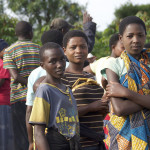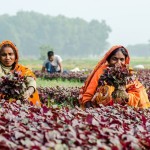REGISTER: http://bit.ly/1XCwkr9 MORE INFO: ingenaes.Illinois.edu/2017symposium
Call for abstracts/Learning Labs for the Agriculture, Nutrition, and Health Academy Week
The Agriculture, Nutrition & Health (ANH) Academy invites the global community of ANH researchers and users of this research to the first ANH Academy Week to be held in Addis Ababa, Ethiopia, on 20-24 June 2016. The ANH Academy Week will be an annual event, expanding on the successful history of the five Leverhulme Centre >> Read more
World Food Program Consultancy opportunity
Through Food assistance For Assets (FFA), WFP provides individuals from vulnerable and food insecure households with food or cash-based transfers to help them meet their household’s short-term food needs, in exchange for their participation in asset creation activities that contribute to building longer-term food security and/or the restoration of community services. As part of an >> Read more
How Women Can Maximize the Nutrition and Health Benefits of Irrigation for All
In a new A4NH Gender-Nutrition Idea Exchange post, Elizabeth Bryan builds on the agriculture-nutrition framework to examine the gendered pathways through which small-scale irrigation can affect nutrition and health outcomes. Read the blogpost here. Also, in case you missed it: In response to increasing interest in how health has bearings on the gender-agriculture-nutrition framework, A4NH organized a seminar >> Read more
A4NH/IFPRI Gender Seminar: Gender, Agriculture, and Health: Tracing the Links
UPDATE: Recording of the screencast and presentations are now available on Slideshare. The CGIAR Research Program on Agriculture for Nutrition and Health (A4NH) and the IFPRI Gender Task Force invite you to: Gender, Agriculture, and Health: Tracing the Links Three 15-minute presentations from: Kelly Jones on livelihood shocks and sexual health Research Fellow, Markets, Trade, >> Read more
Publication: “Focus on Families and Culture: A guide for conducting a participatory assessment on maternal and child nutrition”
For many years Maternal and Child Health and Nutrition (MCHN) programs have focused on women of reproductive age (WRA) given that they and their young offspring are the primary risk groups. This choice has also been influenced by the idea that WRA act independently regarding MCHN practices. In the past few years, programs have increasingly involved men based >> Read more
Five mid-week gender reads and resources
How do women and men cope with time burden, and what implications do such gendered coping strategies this have for nutrition? This month's post on the Gender-Nutrition Idea Exchange blog shares results from a systematic review of the evidence: It is time: Why time matters in agriculture-nutrition pathways from the CGIAR Research Program on Agriculture for Nutrition and Health >> Read more
IFPRI Policy Seminar: It Is Time – Gendered Time Use in Agriculture-Nutrition Pathways
Thursday, May 7th, 2015 12:15 pm to 1:45 pm EDT Please join for lunch beginning at 11:45 am Live webcast will be available here at the scheduled time. Moderator: John McDermott, A4NH, IFPRI Panel: Mark Blackden, World Bank (Ret.); Krista Jacobs, USAID Bureau for Food Security; Deborah Johnston, SOAS, University of London & Leverhulme Centre for Integrative >> Read more
Webinar: Enhancing Nutrition and Food Security During the First 1000 Days through Gender-Sensitive Social and Behavioral Change
Enhancing Nutrition and Food Security During the First 1000 Days through Gender-Sensitive Social and Behavioral Change brought to you by the CORE Group SBC Working Group Details Tuesday, April 28, 2015, 10:00am - 11:00am, Eastern Location Adobe Connect Presenter Megan Ivankovich, Program Officer, WI-HER LLC Dr. Taroub Harb Faramand, President and Founder, WI-HER LLC >> Read more
Webinar: The Role of Increased Income and Women’s Empowerment on Nutrition
The Role of Increased Income and Women's Empowerment on Nutrition: A Review of Two Feed the Future Activities in Rwanda Hosted by USAID and SPRING Webinar April 30, 2015 | 9:00-10:30 a.m. EDT Agricultural livelihoods affect nutrition of individual household members through multiple pathways and interactions. This ultimately raises the question - how might these >> Read more


